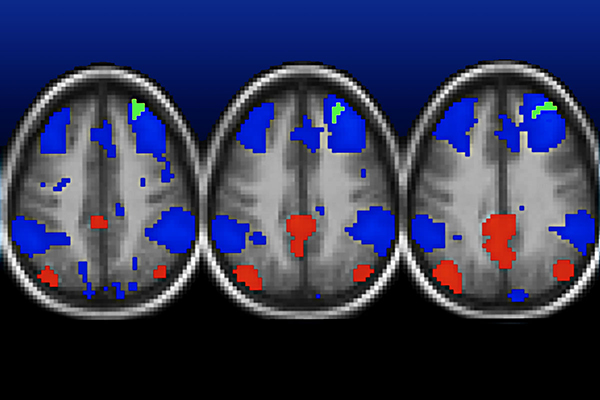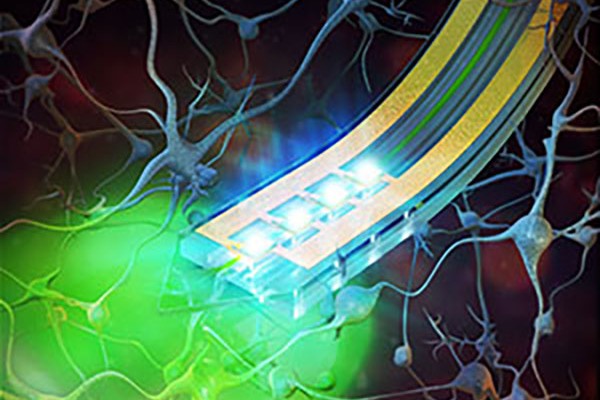Poverty linked to childhood depression, changes in brain connectivity
Many negative consequences are linked to growing up poor, and researchers at Washington University St. Louis have identified one more: altered brain connectivity.
Newly discovered brain network recognizes what’s new, what’s familiar
New research from Washington University in St. Louis has identified a novel learning and memory brain network that processes incoming information based on whether it’s something we’ve experienced previously or is deemed to be altogether new and unknown, helping us recognize, for instance, whether the face before us is that of a familiar friend or a complete stranger.
Exploring the brain’s role in stress-induced anxiety
Calming a neural circuit in the brain can alleviate stress in mice, according to new research at Washington University School of Medicine in St. Louis that lays the foundation for understanding stress and anxiety in people. The researchers also showed they could shine a light into the brain to activate the stress response in mice that had not been exposed to stressful situations.
Device delivers drugs to brain via remote control
A team of researchers, including neuroscientists from Washington University School of Medicine in St. Louis, has developed a wireless device the width of a human hair that can be implanted in the brain and activated by remote control to deliver drugs to brain cells. The technology, demonstrated for the first time in mice, one day may be used to treat pain, depression, epilepsy and other neurological disorders in people by targeting therapies to specific brain circuits.
Encouraging diversity in the neurosciences
In an effort to increase diversity in the neurosciences, Washington University in St. Louis has received a five-year, $1.5 million federal grant to participate in a national pipeline program with that mission.
Functioning brain follows famous sand pile model
In 1999, Danish scientist Per Bak made the startling proposal that the brain remained stable for much the same reason a sand pile does; many small avalanches hold it at a balance point, where — in the brain’s case — information processing is optimized. Now scientists have shown for the first time that a brain receiving and processing sensory input follows these dynamics.
Bruchas, Gereau receive DECODE grant
Anesthesiology researchers Robert Gereau, PhD, (left) and Michael Bruchas, PhD, (right) have received one of only 11 DECODE (Deciphering Circuit Basis of Disease) grants to be awarded. The awards were announced at a ceremony featuring Thomas Insel, MD, (center) director of the National Institute of Mental Health (NIMH).
Raichle awarded Kavli Prize in Neuroscience
Marcus E. Raichle, MD, a Washington University professor internationally renowned for his contributions to advancing the frontiers of cognitive neuroscience, is one of three scientists awarded this year’s prestigious Kavli Prize in Neuroscience.
Tiny wireless device shines light on mouse brain, generating reward
Using a miniature electronic device implanted in the brain, scientists have tapped into the internal reward system of mice, prodding neurons to release dopamine, a chemical associated with pleasure. This LED light can activate brain cells and may lead to the mapping of circuits involved in sleep, depression and addiction.
Avoid impulsive acts by imagining future benefits
Why is it so hard for some people to resist the least little temptation, while others seem to possess incredible patience, passing up immediate gratification for a greater long-term good? The answer, suggests a new study from Washington University in St. Louis, is that patient people focus on future rewards in a way that makes the waiting process seem much more pleasurable.
View More Stories



